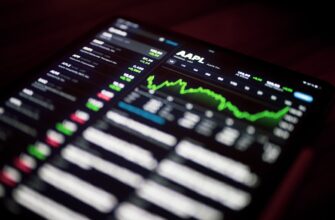Finding the Right Bitcoin Wallet for Moroccan Users
With Morocco’s growing crypto adoption despite regulatory uncertainties, choosing the best Bitcoin wallet is crucial for security and convenience. As the Central Bank maintains restrictions on cryptocurrency transactions, Moroccan users need wallets that prioritize privacy, low fees, and MAD compatibility. This guide compares top wallets accessible in Morocco, balancing ease of use with robust protection for your digital assets.
Key Features to Evaluate for Moroccan Bitcoin Wallets
When selecting a Bitcoin wallet in Morocco, consider these critical factors:
- Security Protocols: Look for non-custodial wallets with two-factor authentication (2FA) and biometric locks to retain full control of your keys.
- MAD Compatibility: Opt for wallets integrating local payment methods or supporting MAD conversions via P2P exchanges.
- Low Transaction Fees: Prioritize wallets with adjustable network fees to minimize costs for cross-border transfers.
- User Experience: Arabic/French language support and intuitive interfaces help navigate Morocco’s tech landscape.
- Regulatory Adaptability: Choose wallets allowing anonymous use without KYC, respecting local legal ambiguities.
Top 5 Bitcoin Wallets for Moroccan Users
- Trust Wallet
- Pros: Non-custodial, supports 10M+ assets, built-in DEX, Arabic interface
- Cons: Limited MAD direct purchases
- Morocco Fit: Ideal for P2P trading via Binance with low 0.1% fees
- Exodus Wallet
- Pros: User-friendly desktop/mobile sync, live charts, 24/7 support
- Cons: Higher exchange fees (~3%)
- Morocco Fit: Offline mode bypasses internet instability in remote areas
- Ledger Nano X (Hardware Wallet)
- Pros: Military-grade security, Bluetooth connectivity
- Cons: 149€ upfront cost
- Morocco Fit: Immune to Moroccan phishing scams; cold storage for long-term HODLers
- Binance Web Wallet
- Pros: Direct MAD deposits, P2P marketplace, staking options
- Cons: Custodial (less control)
- Morocco Fit: Seamless dirham conversions and local vendor payments
- BlueWallet (Lightning Network)
- Pros: Near-zero fees, instant BTC transfers
- Cons: Technical setup complexity
- Morocco Fit: Optimized for micro-transactions with Moroccan merchants
Setting Up Your Bitcoin Wallet in Morocco
Follow these steps to start securely:
- Download your chosen wallet from official sites (avoid third-party stores)
- Generate and handwrite your 12-24 word recovery phrase (never digital)
- Enable 2FA and fingerprint authentication
- Fund via P2P platforms like Binance or LocalBitcoins using bank transfers
- Test with small amounts before large transactions
Legal Considerations for Moroccan Crypto Users
While Morocco’s Office des Changes banned crypto transactions in 2017, enforcement remains limited. Users should:
- Declare crypto earnings on tax returns
- Avoid commercial transactions exceeding 10,000 MAD
- Use decentralized wallets to maintain privacy
- Monitor Bank Al-Maghrib for regulatory updates
FAQ: Bitcoin Wallets in Morocco
Q1: Is Bitcoin legal in Morocco?
A: Ownership isn’t illegal, but transactions violate exchange regulations. Most users operate in a gray area with personal wallets.
Q2: Can I buy Bitcoin with Moroccan Dirhams?
A: Yes! Use Binance P2P or LocalBitcoins to trade MAD for BTC directly.
Q3: Are hardware wallets worth the cost?
A: Absolutely for holdings over 5,000 MAD. Ledger/Trezor prevent remote hacking common in phishing-prone regions.
Q4: Which wallet has the lowest fees?
A: Trust Wallet and BlueWallet offer sub-1% fees. Avoid Coinbase (3-4% for Moroccans).
Q5: How do I cash out Bitcoin in Morocco?
A: Sell via Binance P2P for MAD bank deposits or use Bit2Me cards at ATMs (requires international travel).








